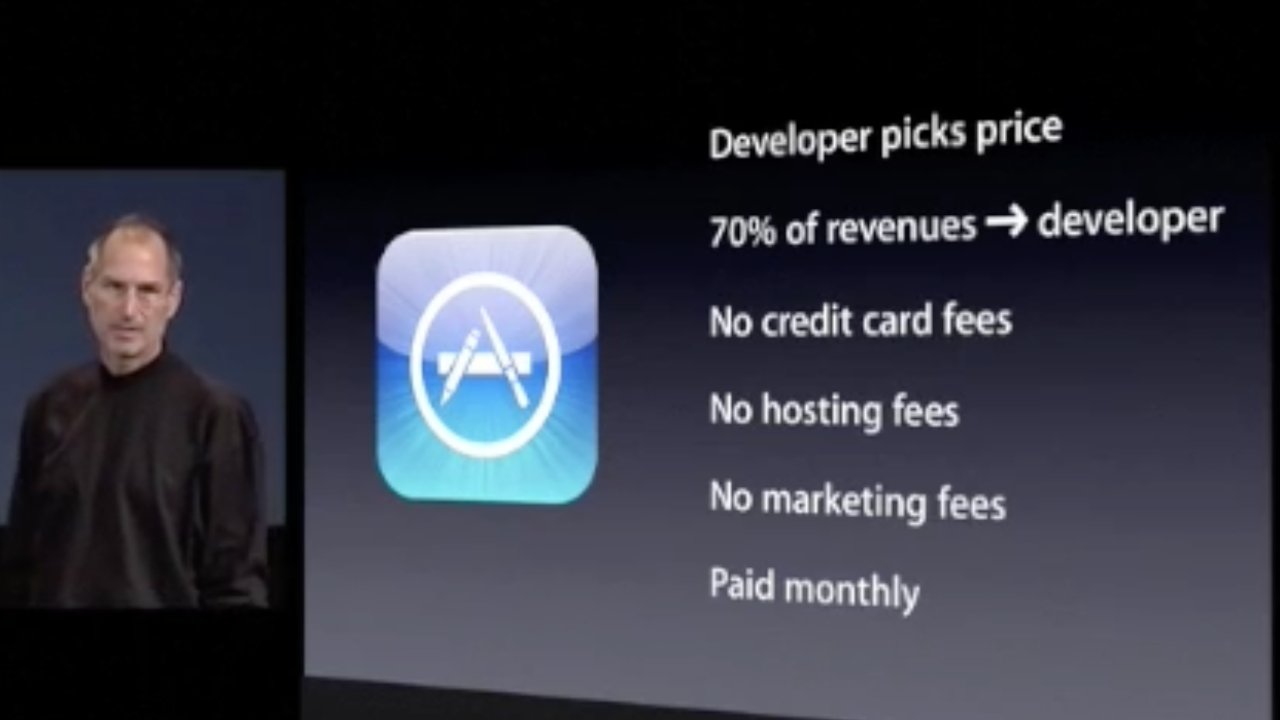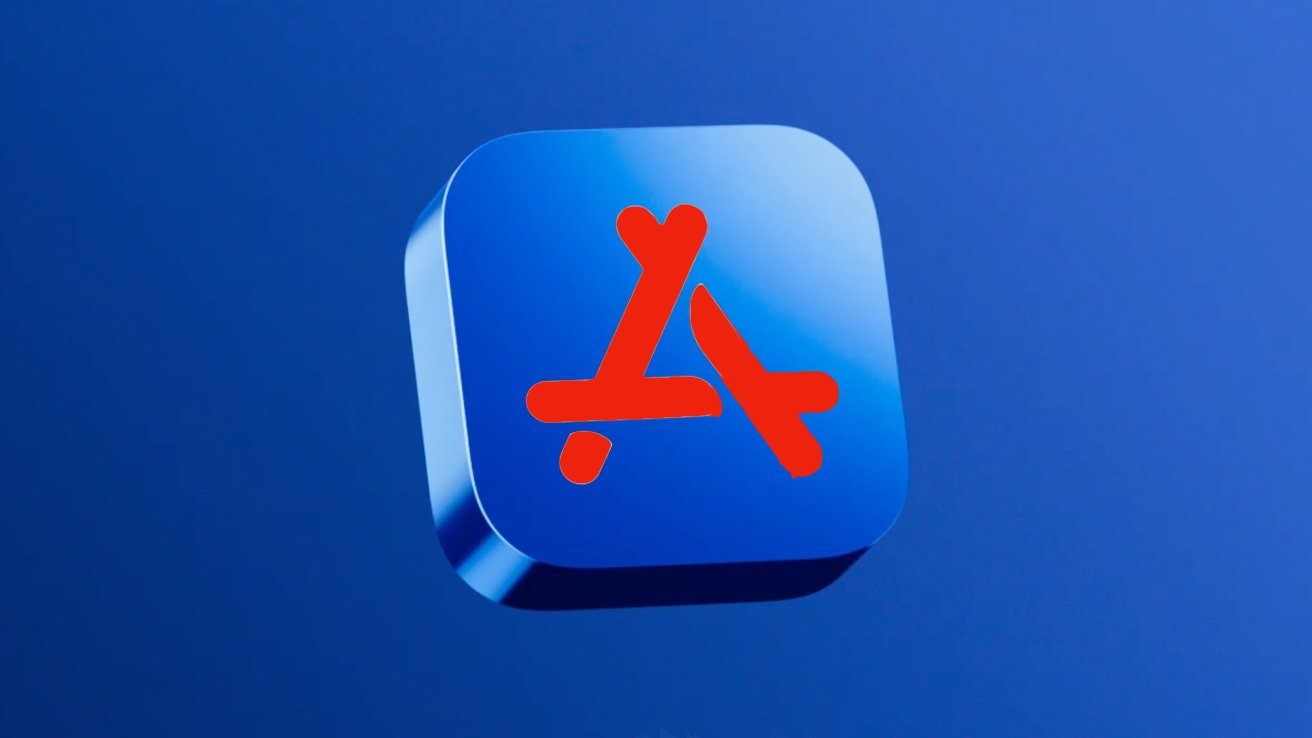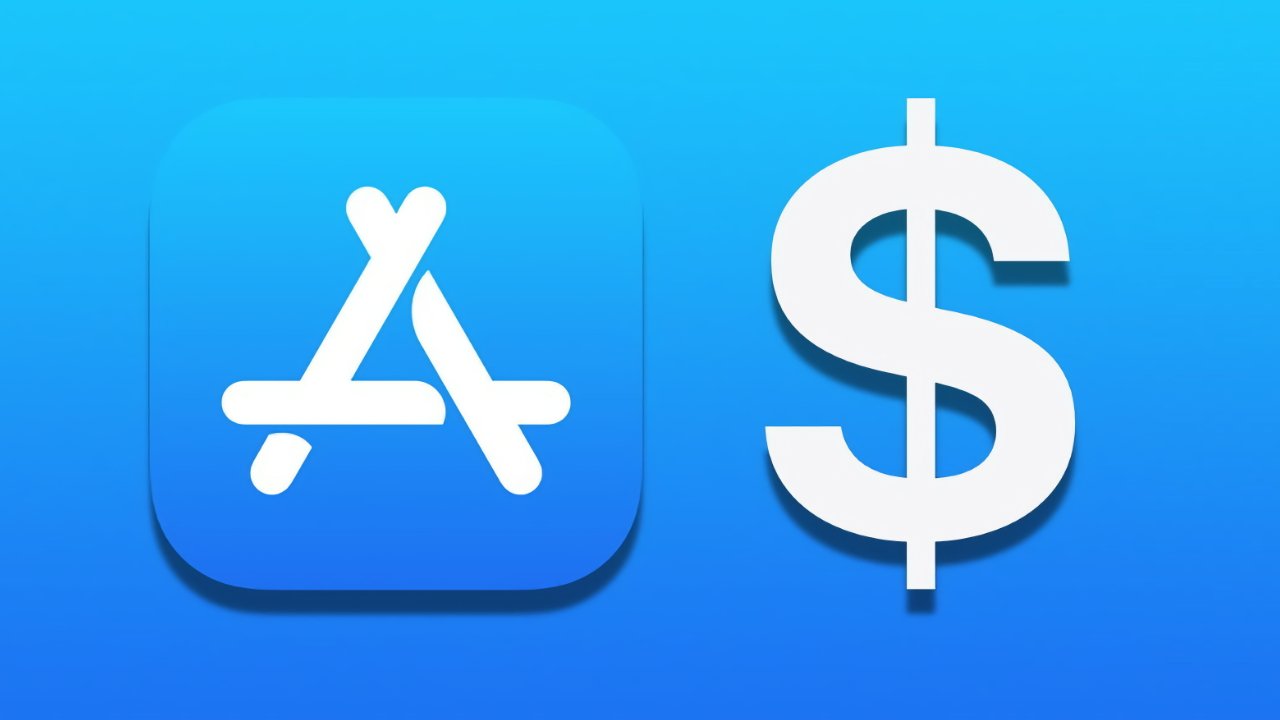Firms protesting against Apple's App Store rules keep saying they're looking out for our interests as users, but it's solely about their profits, and to make that money they are fighting to remove what protects us from scams.
Forget that it's Apple who runs the App Store. Certainly, it is important that it's Apple, since that company is surely the most scrutinized in the world, but what's more important is that the App Store is run by one single company.
With one firm, you may agree or disagree with its rules and its prices, but at least it is one single set of terms and conditions for you to ignore. You're not signing up to countless different stores, you're not giving your credit card details to countless different companies.
That is what you will be doing if the App Store is opened up everywhere. And when it happens, any developer who directs you to their site has the opportunity to make much more money out of you.
Who benefits?
Forget the nonsense that firms like Epic Games are only looking out for us. No developer who gets out of Apple's 30% will ever pass on that whole discount, no matter how loudly they say they just want everything to be fair.
Some developers are semantically calling it a discount, and removing what they call fee to offset what Apple charges. But, that's the same as a company jacking up a price in the days before an Amazon sale, then cutting that price, and calling it a deal.
And some like Epic are offering "rewards."
App Store fees might well be lining Apple's pockets, but they're also being spent to run the store. Developers would have to now pay for everything that Apple automatically includes in its fees.
So making users buy directly from them means a developer has to take on credit card processing, for one thing.
The developer also has to suddenly manage all of the different tax laws and requirements in the territories it sells to. It's likely that there are developers who've never sold apps before the App Store and so have had no reason to even realize how complex global tax is.
 Direct links to developer sites removes all but the first of the App Store benefits announced by Steve Jobs in 2008 — image credit: Apple
Direct links to developer sites removes all but the first of the App Store benefits announced by Steve Jobs in 2008 — image credit: AppleSo there's a cost in time to learn that and to manage it, as well as having to pay out tax directly. Or issue refunds. Or manage subscriptions, including users cancelling, or switching to different tiers.
Maybe any developer can take this on in theory, but in practice, the only ones who will are going to be the ones that can afford it. Even then, it'll be the ones who can afford it and who already have experience in global sales.
It will be the giant developers, then. It will be the likes of Epic Games.
Follow the money
Epic Games CEO Tim Sweeney claims that his firm's legal battle against Apple cost it $100 million in fees, plus an estimated $900 million in lost revenue. But he did not have to spend anything — literally every single cent was his choice.
Sweeney does try to make it sound like he took on the Man, that he stood up to corporate Apple. But this is not a mom and pop operation winning a moral victory, it is one billion-dollar corporation fighting a trillion-dollar one.
And no corporation spends a billion dollars through righteous indignation. This fight was for profit and who gets it.
So Epic Games doubtlessly believes that it will get this money back, and is unquestionably certain that it will get much, much more.
If it gets that purely through being a popular download, that's fine. That's earned success.
But speaking of the word "fine..." In 2023, Epic Games was fined $245 million by the FTC. It had been exploiting what's called dark patterns.
Buttons in the Fortnite game were ruled to have been deliberately counterintuitive, with the specific result that players would press the wrong one and be directed to in-game currency. It wasn't some unfortunate coding or accidental design, either, as those wrong buttons led to the user being billed for purchases.
Then at the same time, Epic Games was accused of enabling children to make massive in-app purchases without parental consent.
What may come
Epic Games has proved itself, in law, and in observable practice, to be the kind of problem that we are likely to now see with more open app stores. There is a strong monetary advantage to an open app store that goes far beyond the ability to avoid paying Apple a cut.
And where there is such an advantage, it will be exploited, by every developer with the resources and the mindset to do it.
So there will be more stories of children running up bills. There will be more stories of people inadvertently choosing the wrong purchase for them, and not being able to change it.
True, there will also be all of this because some developers will make genuine mistakes as they try to adapt to the new order. There will also be developers who bring their users actual new advantages and benefits to buying this way.
But there will be unscrupulous companies making a lot of money through scams, through dark patterns, through misdirection and heavy selling.
And that's not even considering whether there's a profit in dozens of developers selling on your details to advertisers, which Apple does not do.
Apple can't walk away
None of this is to say that Apple has godlike morality, because none of it needs Apple to have. All Apple needs to have to be better than a wide-open app store, is for it to be a single company, coming under scrutiny.
When little Tommy spends his family's life savings on skins and battle passes, the parents will sue. Even if they realize how the App Store has changed, though, and even if they correctly sue the right developer, there is more.
They will definitely sue Apple.
Apple has a lot of money, so it will be sued. Users will not conclude that this or that developer is bad and the cause of the problem. They, or their children, made the purchase on the iPhone, with an app downloaded from the App Store, and will assume that the App Store is to blame.
And there are at least two giant law firms that we can think of that won't discriminate and go after the deepest pockets that they can when little Timmy racks up $10,000 in Fortnite bucks purchases. After all, they get a hefty percentage of the settlements.
All of this will make iOS the same as Android, at least in the minds of Ma and Pa America app buyers. That's not good for buyers, for Apple, or for developers.
This is not AppleInsider trying to make a case for keeping things as they are. This change is coming, and the large developers pressing for it will declare a victory for the little user.
But they will be at best, bending the truth, but more realistically just lying about it. And instead of just downloading an app when we need it, we will have to vigilant — and finally read those terms and conditions.
 William Gallagher
William Gallagher



-m.jpg)






 Chip Loder
Chip Loder
 Mike Wuerthele
Mike Wuerthele

 Amber Neely
Amber Neely
 Malcolm Owen
Malcolm Owen
 Christine McKee
Christine McKee

 Andrew Orr
Andrew Orr









15 Comments
Good read, but this line stands out as the real takeaway:
And instead of just downloading an app when we need it, we will have to vigilant — and finally read those terms and conditions.
Anything that teaches, by hook or by crook, by reward or by cudgel, the "general populace" (waving hands around) to take their security into their own hands and balance petty wants against risk will only benefit them in the long term. Because guess what? Apple itself is only motivated by its desire to make money, as much of it as possible.
Given how the App Store is packed full of scam apps, gatcha games, quickly-approved apps that are little more than rip offs of existing IP, and apps with privacy reports cards that don't actually match the data that the apps collect (not to mention Apple's strong-arming developers into adopting subscriptions again in order to feed its rapacious desire for recurring revenue), the blind trust placed in Apple to assume guardianship of our security, privacy, and the overall experience of acquiring applications is misplaced, as it is always misplaced when we abdicate our personal responsibility.
Whether one central app store or dozens, assume none of them are looking out for your best interest. Because they're not.
My only problem with the 30% is that it is not fair. Apps like FB, WhatsApp and all the chart toppers probably contribute most to bandwidth costs, yet aren't billed for it. They are also Free & have no in-app purchases so not like Apple is making a lot of money off them.
I said this in an earlier post, but I hope there will be an option in settings to choose the app store as the only place from which to download.
I still remember the countless news stories about some rogue malicious malware spreading in iPhones. It was all over the news. “Apple iPhone” hacked.
its about to get worse.